LIL TEXAS: HARDNESS, LOUDNESS, AND SPEED
Lil Texas is a producer, DJ, and performer currently based in LA. Formerly, a jazz bass player drop-out from Berklee College of Music as well. His transgressive sound and performance since 2018 have contributed to the evolution of the recent American hardcore sound and styles, making way for it to unfold in both, underground scenes and pop arenas alike.
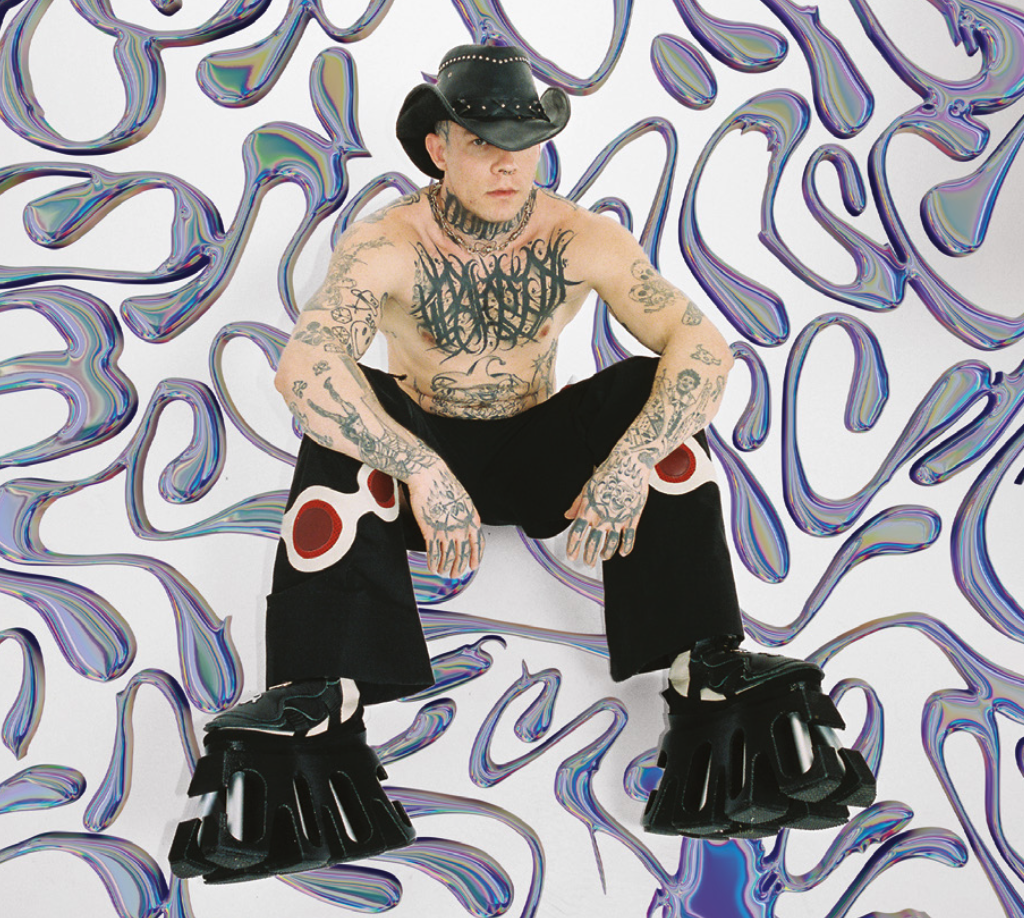
FASHION DESIGN by RACINE @designbyracine
PHOTOGRAPHY by BORIS HALA @borishala
CONFECTION by @charlotteenpapillote @siren.mars @_joboudreau @jessicaharvanova
TUNICA Hello! We’ve seen you all over the place lately and you’ve told us about your incoming projects for this second half of 2022, including your single coming up in December, a MUST DIE! feature, and a Kesha remix.
Tell us, is there a particular label that you currently associate with the most?
LIL TEXAS There’s no particular label I’m assigned to exclusively, so far, I've worked with a variety of labels, Dirty Workz, Masters of Hardcore, Kayzo's WELCOME Records, and about to do stuff with Zead's Dead's label Deadbeats.. the list goes on! T We know that your musical background is jazz, part of a heavy academic formation, so we are interested to know how that shift happen, from a jazz bass player to a hardcore DJ/producer.
T Have you always been involved in these scenes?
LT Well, I've always been into electronic music a lot. I've listened since a very young age to artists like Aphex [Twin], Squarepusher, Ceephax Acid Crew, [The] Prodigy, and early drum and bass, UK garage-type stuff. I have been experimenting with that since I was in college, but I never took it seriously until about 2011-12, the time I got Ableton. Back in those days, I wasn't doing hardcore, I was making like trap and jersey club, sort of like proto-future bass, heavy melodic sounding stuff. It is until 2018 that I got into hardcore in-depth, actually, after taking a tough break from music, I soon realized that my life wouldn't be fulfilled unless I did make any music, even as a hobby, and I do take my hobby seriously so… After all, I considered to rebrand my act, by focusing my music and performance into the hardcore. Not many people were doing that at the time, so I thought of it as a unique range to pull through modern industry.. and it ended up working out!
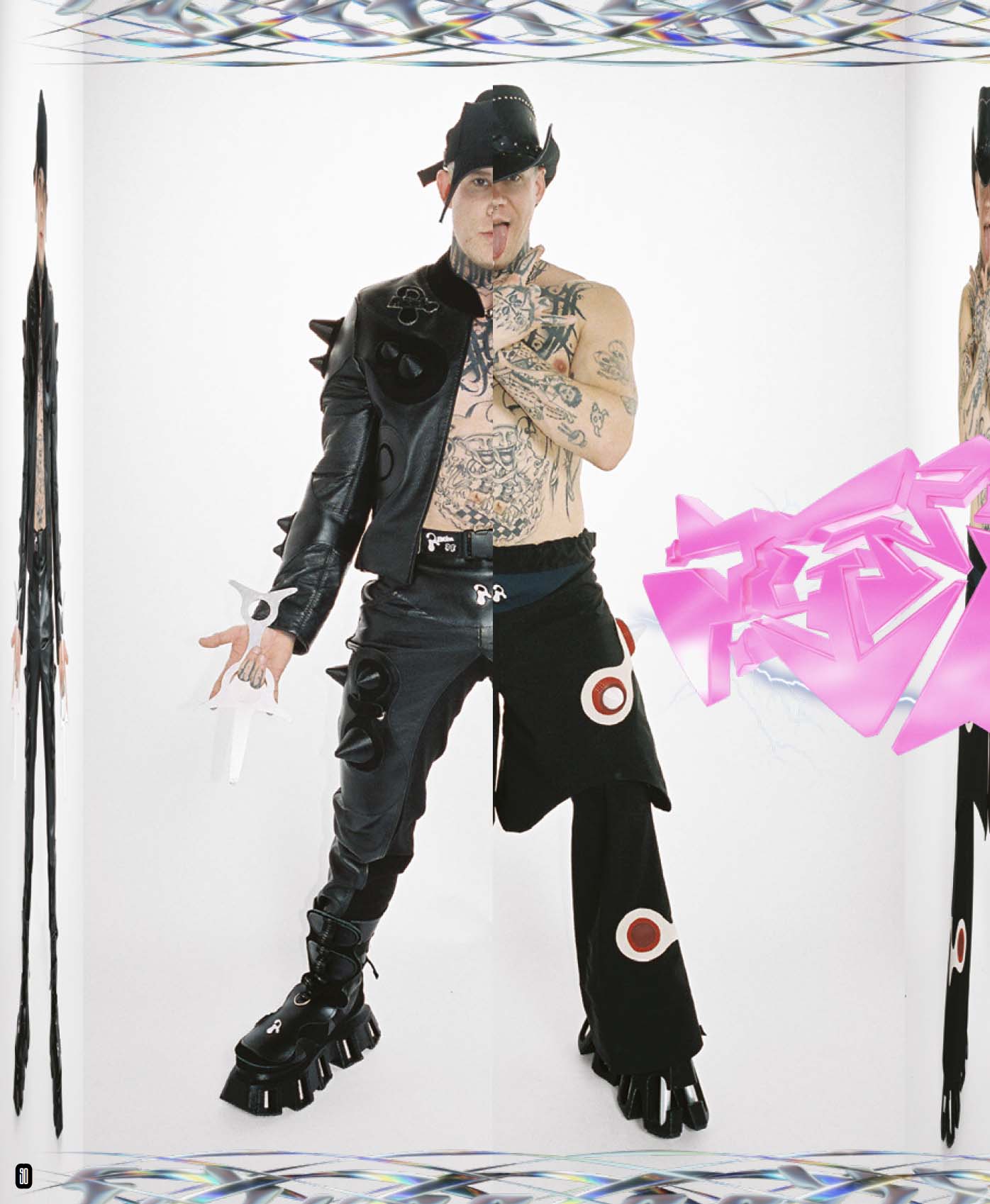
T How do you feel about the contemporary hardcore scene, how do you see it evolving or where it's heading?
LT I think there's a lot of really cool stuff happening right now within hardcore, I think that hardcore, as an art style, and the harder styles, in general, have somehow weirded their head into a lot of popular genres, from happy hardcore and even proper hardstyle being incorporated into the hyper pop artists work, for example. I've had the opportunity to work with Dorian Electra, did also the remix for Lady Gaga and Elton John, which is pretty epic, so I do find a lot of crossover potential there. But I also think it is quite large in the underground as well, especially on the hard techno stuff, where the lines between hardcore and hard techno have started to blur. In the sense of hard techno sounding like modern early hardcore. At underground parties, for instance, I've been hearing music that's fast, above 150 bpm, often faster, and definitely, I think hard techno is like the fraternal techno of hardcore. And I see it growing, you know, hardcore style has always been popular in Europe, and it is growing in the States now.
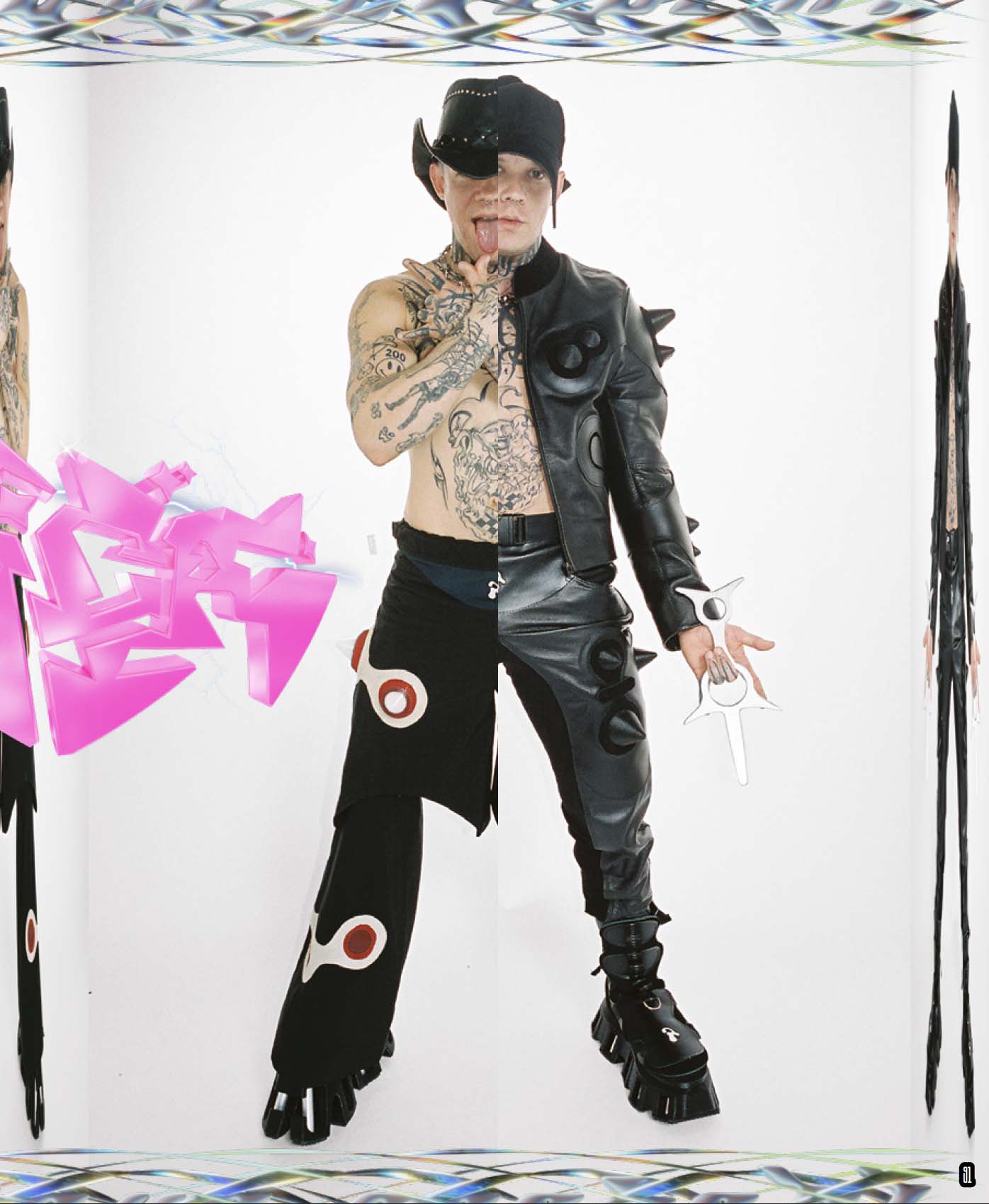
T It took a lot of time for hardcore to pave its way into America, why so?
LT Yeah, well, it was sorta big in the '90s, and while it never really completely died, I do think it did see a large dip from the level it was in the mid and late '90s, with for example the American DJs going over to Europe and doing Thunderdome and stuff like that, you had Rob GEE, Omar Santana, DJ Delirium, and more, guys that were pulling up very quality hardcore at its time, doing great and selling a lot of records all over the world. Rob GEE for instance had a hit, this is a New York dude, playing hardcore music on the radio in Holland. I think that compared to that now we see that this sound is started to be used in mainstream world media, within certain genres, artists are pushing the speed and sound and incorporating it… and it is working well for me, you know, we're bringing the harder styles into festivals that have never booked hardcore acts, I just played Lost Lands, which had never hosted such types of performances before.
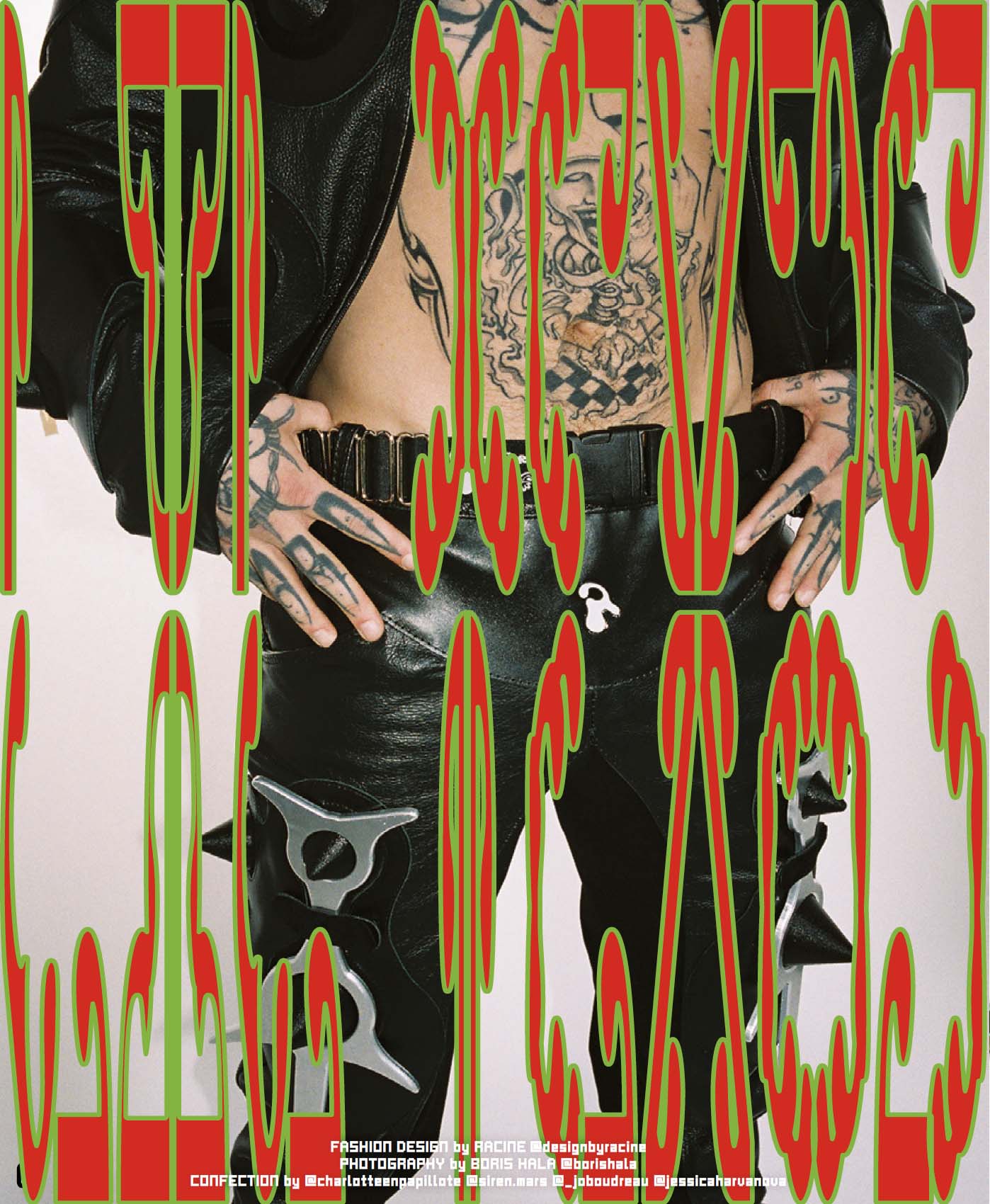
T Ever since the EDM bass boom that started around 2010 with the massive music festivals in America, it seems to me that American audiences, particularly younger audiences, have been demanding an increase in the hardness, loudness, and speed of some electronic music genres. What do you think this is a symptom of?
LT It's a lot of things, man. That's a great question, and something I've pondered over quite regularly… what has caused this resurgence? Well, especially in the underground, for instance, when I go to underground parties in LA I'm hearing straight-up early hardcore. I'm not hearing mainstream, modern hardcore so much, because it's more like warehouse parties, and because underground parties are dominated by hipsters and left-field, or alternative people –for lack of a better description– I think that you don't hear like the mainstream modern stuff. Yet what this has to do with is, maybe, this feeling that the world is a little bit chaotic, this feeling of sort of disillusionment; the awareness that there’s powers that are so big and above our control that we really have no control over it. Like government, with corruption that exists on all fronts, how do we win your own? I mean, that's sort of my take, that politics can be suddenly reduced to voting for the lesser of two evils, essentially. It's what it is.
T It sort of feels like people are living in a post-political state, when they no longer believe that political organizations can push society towards desired common goals, and this nihilism is reflected in several ways in the art scenes.
LT Yeah, I think a lot of it has to do with that they feel that no matter what they do, they're still going to be like nothing's going to change. It's that feeling if these guys are getting paid by corporations, but so are the other guys… there is this kind of cold realization that potentially both sides are just two evils, or different sides of the same evil. These are not necessarily my beliefs and without getting too political on it I do feel that the consensus within America does sort of feel that way. It's like we're damned if you do, damned if you don't. So there's just like a bit of like uncontrollable chaos … and what is the soundtrack of uncontrollable chaos? Or controlled chaos.. it is fast, hard, loud music that sort of backends that chaotic energy and feeling of disillusion. But whether it has to do with the art scene as much or not, I feel more like that's just the state of affairs within the world, broadly, a lot of general apathy, and a lot of doomer mentality too, you know what I mean. There's also a lot of go-getter mentality in the world today too, and I don't think any of this is an all-encompassing thing. But I think there is, at least during the pandemic, and post-pandemic, a lot of feelings of lack of control, that there's nothing one can do …they're fucking us over, and suddently then you got the whole Russia thing?! And it's like… what the fuck fuck you got? So yeah, I think it's not about the art as much as it's about what's going on in the world.
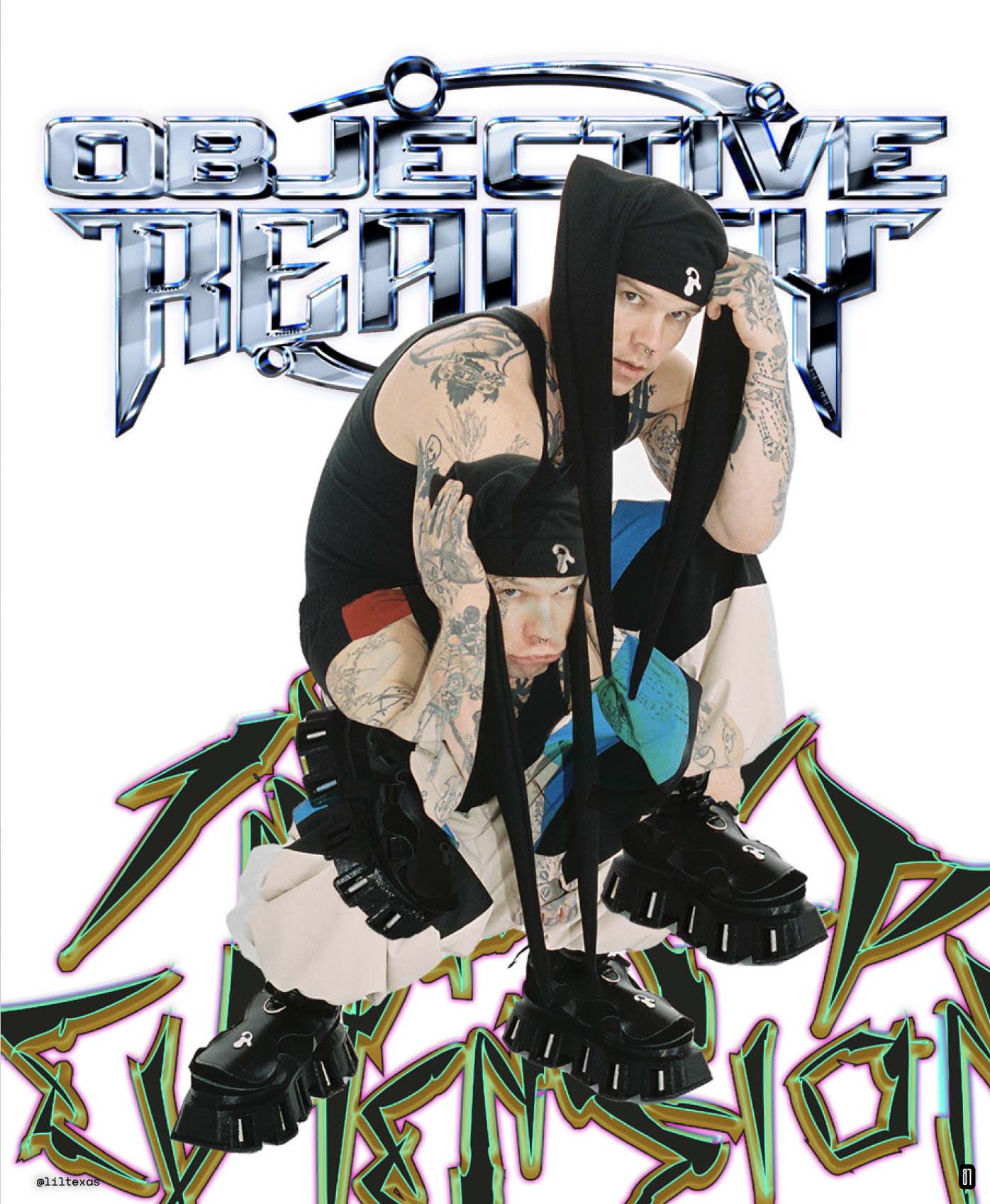
T So from what you've seen touring and in your scene, tell me, if one could say that there's this air of cynicism that people breathe, then, what happens as these people release themselves to higher powers of that sort, submit to them, to different extents, in any type of art expression. For example, at a festival, isn’t one submitting to a force larger than oneself? Overall, I’d like to know how you feel about people’s current relation to art in this apathetic and pessimist scenario. If art is conceived either as a force that can allow for spiritual relief or political unity at least, I wonder how this apathy that surrounds us permeates into the art we create and consume, and how this apathy is neutralized too.
LT No, totally! To your point, I think there is a release, and I think that like people can lose themselves in music. I certainly lose myself in music when I'm performing on stage, and it's a shared experience. And it's, it's, there's an aspect of catharsis and healing, you know, it's like, why is metal so popular? You know, I mean, for some reason, metal, and like punk and grindcore hardcore and these hard sounds that are aggressive, they make people feel good, and they offer the feeling of good, and anything that makes people feel good, maybe even relaxed, focused or high energy, excited, that is always a good thing in the world. I do think that that's an aspect of healing, even though the music is extremely aggressive and can be kind of crazy, if it brings joy to somebody's life, it brings a positive experience, that positive experience is a good thing, no matter what the music necessarily sounds like.
INTERVIEW by EMILIANO GUEVARA @talkslower
Published on TUNICA Magazine Issue No.8